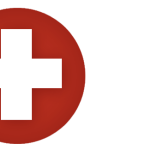First off, I would like to thank you for checking out my website. I intend to provide the best & most valuable information possible. With that said, I’ll kick this first blog post off with some common misconceptions, and my straightforward and honest viewpoints about them.
I love the Fitness Industry and everything that it encompasses; it is, and always has been a realm of interest and passion for me. That said, I must admit that there is A LOT of misinformation out there. For someone who is unfamiliar with the concepts of Nutrition & Exercise Physiology, as well as other health related beneficial lifestyle manipulations…it can be a world of confusion. There is conflicting information of all sorts…what should you believe? Typically, it takes extensive research, testing, and application, including plenty of experience from trial & error to find out what works best for you. However, when you get into more recent scientific findings and innovative approaches, you would be surprised at how consistent and positive results and practices become.
The typical nutritional and exercise guidelines and recommendations are becoming outdated and ineffective, and in fact many have now been shown to be detrimental to the improvement process.
Without going into too much depth here, I will address some of the most common recommendations that are WAY outdated and ineffective. These topics may be somewhat controversial, but I am happy to go against the grain and promote education and awareness by challenging ideals of the past.
Regarding Training:
I. Train each body part/muscle once per week:
In order for muscles to develop and grow appropriately, they need to be stimulated more frequently than just once per week. A muscles increased demand for protein (i.e. increase in protein synthesis) occurs for roughly 2-3 days after being trained (most of the time), after that it declines back to baseline. Therefore, re-stimulation will be needed for maximum development to keep progressing at a faster rate. Mind-you, recovery is paramount and proper intake of nutrients and rest are imperative to make sure you are able to train muscle(s) more frequently. In addition, it should always be a gradual and strategically progressive process; don’t jump into training all body parts twice per week right off the bat if you have been training them only once in the past. Slowly incorporate more frequency and watch your results take off to new heights.
II. Training HEAVY is the only way to grow:
Okay, we’ve all heard this before. Quite frankly, you DO want to subject the muscles to sufficient load (at certain times) *ONLY when it is under complete control though. When momentum, inertia, or bouncing come into the equation, you can kiss your gains goodbye. As I’ve said before and will continue to say – TENSION is king when it comes to muscle growth & development. This is a well known fact by scientist and resistance training specialists around the world. That is all muscles know – tension. In fact, they do not even recognize how much weight is being moved; rather the amount of intramuscular tension or torque dictates response and subsequent development. Moreover, muscle-volumizing/time-under-tension/cell-swelling training techniques have recently demonstrated to be more correlated with Hypertrophy than heavy training. But back to optimizing Tension within movements, it can go into much more depth with regard to specificity of contraction and specific execution guidelines (some of which can be seen in my YouTube and Instagram video clips+descriptions), but for now we will move on.
III. Training *this way* is the *best:
Hmmm… It doesn’t take a rocket scientist to know that you need to constantly subject the muscles to different types of stimulus. The body is very adaptive and will stop responding to any method of training after consistent exposure. There are MANY variables that need to be exploited and manipulated such as: Rep & Set numbers, Rest Period Intervals, Tempo of Reps, Overall Density of workout (amount of work within given timeframe), Intensity/poundages/overload…and the list goes on. These variables need to be changed and manipulated consistently to ensure constant progression without plateaus. This is why proper Periodization is critical to any well-designed training program.
Regarding Nutrition:
I. Eating Fat will make you fat
Okay, by this point I am hoping that nobody still believes this nonsense.
Healthy fats (such as found in Nuts, Wild Fish/Fish Oil, Whole Free Range Eggs, Grass-Fed Meats, Avocadoes, Coconut Oils, etc) are all essential to overall health and well being. They promote optimal blood lipid levels/cholesterol, optimize brain function, boost hormone levels, reduce inflammation, aid in joint mobility, can reduce likelihood of cardiovascular disease, and much more. They key is to make sure that these fats are not ingested in the presence of excessive carbohydrates. Even when trying to eliminate as much body-fat as possible, it is absolutely imperative to consume good amounts of healthy fats to teach your body to run on fat rather than carbs; in other words, become “fat adapted”. This way, you will be running on and mobilizing fatty acids for use in the mitochondria as your primary energy source and will experience an overall loss of adipose (fat) tissue. Minimizing consumption of healthy fats will not only reduce overall health, but it will also end up forcing your essential-fat deprived body to hold on to any fat possible… definitely not what we want either. In conclusion, make sure to get adequate intake of healthy fats!
II. Only* eat this and that (fill in the blank – egg whites/chicken/brown rice/broccoli/etc):
The human body needs a wide array of different nutrients to function optimally. Varying and rotating nutrient sources is critical to maintain optimal physiological function and thereby boost muscle building potential. For example, as you probably already know, each protein source has its own specific amino acid profile/ratio that may be higher in certain amino acids than others. Consuming too few different protein sources could lead to amino acid deficiencies and thus reduce muscle building potential as well as overall health (amino acids perform many more functions in the body than building muscle; they are precursors to certain neurotransmitters in the brain, others provide bodily detoxification, and much more). Strive to get as many quality protein sources as possible (options include Elk, Venison, Buffalo, Grass-Fed Beef/Steak, Ground Turkey, Chicken, Free Range Whole Eggs & Egg Whites, Wild Fish- Cod/Orange Roughy/Sole/Flounder/Salmon/Ahi/Shark/Swordfish/etc)…and the list goes on. So don’t be afraid to branch out and give your body additional nutrient profiles. Incorporating more variety will also reduce the likelihood of developing food sensitivities (which is a very common occurrence that many do not even realize). Varying food sources also applies to vegetables…make sure to get plenty of different alkalinizing dark leafy greens that are packed full of vitamins and minerals such as Spinach, Kale, Broccoli, Asparagus, Brussel Sprouts, etc. Vegetables also are known to contain tons of micronutrients and phytochemicals (naturally occurring chemical compounds which have specific health-boosting nutritional properties) as well as fiber (the indigestible part of plant foods which boosts digestive health, can offset diseases like cancer & diabetes, lower cholesterol levels, & produce feelings of satiety). Bottom line, DO NOT get stuck eating the same things over and over, you will only be doing yourself a disservice.
III. It is imperative to consume large amounts of carbohydrates (especially at breakfast) to GROW!
Well yeah; if you want your fat cells to grow too. There are SO many misconceptions about carbohydrate intake. This hits home because in all reality, excessive carb intake has lead to an epidemic of disease and obesity worldwide. However, I am a firm believer in consuming adequate carbohydrates – as long as they are earned. For someone who is active and/or training hard, recovery is paramount and glycogen levels need to be replenished. BUT, I actually advise AGAINST consuming carbohydrates earlier on in the day (especially not with the first meal of the day—see my Instagram & Facebook posts on the ideal breakfast, or look into Charles Poliquin’s coined “Meat & Nut” breakfast. Also consider utilizing coconut oil for immediate and sustained energy source from MCT’s). The first meal eaten dictates neurotransmitter levels for the entire day, and also programs preferential substrate utilization. Ideally, you want to rely on healthy fats and high quality protein sources to fuel up on earlier to teach your body how to run on fat as primary fuel source, (which will thus facilitate fat loss/optimize body composition, & improve health &well-being). Then, later on after training, you can load up on a good amount of carbs (ideally even high glycemic carbs such as white rice or baked sweet potatoes to boost insulin signaling and muscle building processes) with a quality lean protein source. By saving your carbs for after training (or perhaps during…more on this to follow), your body will benefit from them WAY more, and you will have increased insulin sensitivity and better overall nutrient utilization. This post-workout carb intake will also carry over into the next day’s training session, and in fact will be much more accessible to use during the workout without the presence of ingested carbs or circulating insulin prior. In addition, as brought up earlier, not consuming carbs before your workout (and throughout earlier parts of day) will create an up-regulation of key neurotransmitters such as Dopamine and Acetylcholine, which cause feelings of drive, motivation, alertness, etc and also allow your brain to harness naturally produced adrenalin much more efficiently, thus producing much more intense workouts.
Carbohydrate consumption is correlated with a release in Serotonin, which causes feelings of relaxation and lethargy…definitely not what we want before a workout! However, if muscle volumization “the pump” is your number one concern, perhaps carbs may be warranted, but best bet would be to have liquid based carbs (such as highly branched cyclic dextrin + amino acids & electrolytes DURING your workout starting at about 30 minutes into the session). This way, you get the benefits of carbs during and after training and still can capitalize on the fat burning/neurotransmitter boost earlier in the day and into the first part of your workout. It must be noted that everyone is different, and some ectomorphic “hard-gainers” may need to increase their overall carb intake. However, DO be aware that the more carbs you put down on a regular basis, the more desensitized your body will become and the more likely fat gain will be. For many top athletes as well as regular individuals, saving carbs for post-training and utilizing plenty of healthy fats and quality protein for fuel throughout the day has provided MUCH better health and mental acuity, as well as MUCH more muscle gains while optimizing body composition. Just some food for thought!
Outdated Fitness & Nutrition Misconceptions
These are just a couple of the outdated and detrimental recommendations that are unfortunately still being made today. However, I will be happy to dispel any myths that have been proven ineffective and shed light on more innovative, science-based approaches to living a healthy and active lifestyle. My goal is to continue to educate, and would like to discuss relevant topics, so please feel free to make suggestions as to what you would like me to cover. Thank you for your support! #Strive2Optimize




